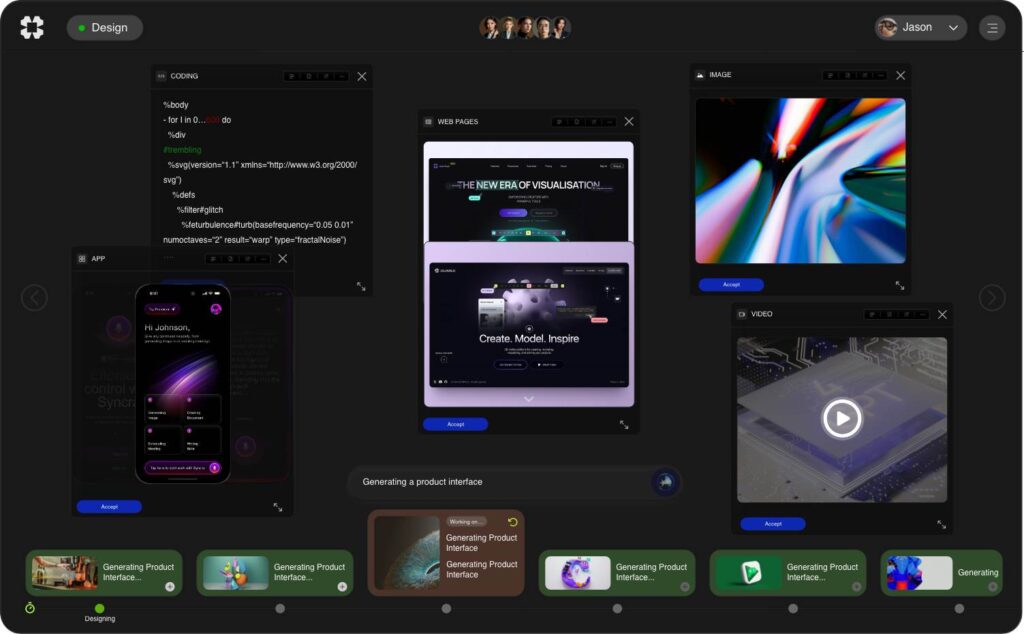Artificial Intelligence (AI) continues to reshape various sectors, catalyzing transformative changes that enhance efficiency, accuracy, and productivity. Among the most impactful areas embracing AI are healthcare, robotics, and automated testing. Each of these fields harnesses the power of AI systems integration, yielding advancements that promise to redefine standards and expectations. This article explores recent trends, solutions, industry applications, and use cases that illustrate the dramatic shifts AI is instigating.
## The Foundation of AI Systems Integration
AI systems integration refers to the process of combining various AI technologies and platforms to create interoperable systems that work seamlessly together. This integration is vital for building smart, efficient, and responsive systems capable of learning and adapting in real-time. With an ever-growing number of AI tools and frameworks, the ability to effectively integrate these disparate systems has become a focal point for companies seeking to leverage AI in their operations.
### Trending AI System Integrations
In recent years, businesses have increasingly turned to AI systems integration as a means to enhance service delivery and operational efficiency. Major trends include the adoption of cloud-based AI solutions, which allow for greater flexibility and scalability. Moreover, organizations are prioritizing open-source AI tools, which foster collaboration and create a more diverse range of solutions.
An essential component of successful AI systems integration is data interoperability, ensuring that data can flow seamlessly between different AI models and platforms. This capability empowers organizations to harness vast datasets, leading to more informed decision-making and innovative solutions.
## **AI in Healthcare Robotics: Transforming Patient Care**
The healthcare sector is one of the most promising arenas for AI-driven change, particularly in the realm of robotics. AI in healthcare robotics is revolutionizing patient diagnosis, monitoring, and treatment, making processes more efficient and enhancing patient care.
### Innovations in Healthcare Robotics
One of the most notable innovations in this field is robotic-assisted surgery. AI-enabled surgical robots, such as the da Vinci Surgical System, allow for minimally invasive procedures with greater precision and control. Studies have shown that robotic surgeries can significantly reduce recovery times, leading to improved patient outcomes and satisfaction.
AI-powered robots are also being deployed for patient monitoring and care in hospitals and elder care facilities. For example, robots equipped with AI algorithms can track vital signs, alert healthcare workers to anomalies, and assist patients with mobility issues. These robots not only enhance patient safety but also alleviate the pressure on healthcare professionals, enabling them to focus on more complex patient needs.
### Industry Use Case: PARO Therapeutic Robot
The PARO therapeutic robot, a seal-like companion designed to provide comfort to patients, serves as an exemplary use case in this domain. Developed primarily for dementia patients, PARO has shown to decrease patient agitation and loneliness effectively. Research has documented PARO’s ability to improve overall patient engagement and emotional well-being, illustrating how AI in robotics can create meaningful interactions that enhance quality of life.
## **AI in Automated Testing: Ensuring Quality and Efficiency**
Automated testing powered by AI is gaining momentum across the software development lifecycle. This integration of AI in testing processes significantly speeds up the testing phase while providing deeper insights into software performance.
### Benefits of AI in Automated Testing
AI algorithms can learn from historical testing data, identifying patterns that indicate potential bugs and areas for improvement within the codebase. By automating repetitive testing tasks, development teams can focus on more strategic areas of the project. According to a report by Capgemini, companies utilizing AI for testing processes see a 30-50% reduction in testing time.
Another significant benefit is predictive analytics. AI-driven testing tools can forecast potential challenges by evaluating past project data, allowing teams to proactively address issues before they escalate, thereby improving the overall quality of the software product.
### Industry Use Case: Test.ai
Test.ai, an AI-driven automated testing platform, represents a significant advancement in this space. The platform leverages AI to create intelligent test scripts automatically, adapting to UI changes and identifying bugs quickly. Companies that have adopted Test.ai have reported improved testing coverage and efficiency, enabling faster delivery of high-quality software.
## **Challenges and Future Directions in AI Systems Integration**
While the applications of AI systems integration, especially in healthcare robotics and automated testing, showcase profound benefits, challenges remain. Issues such as data privacy, ethical concerns, and integration complexity often hinder adoption. Companies must navigate these challenges while striving to remain competitive in a rapidly evolving technological landscape.
### Data Privacy and Ethical Concerns
As AI systems become more integrated into sensitive fields like healthcare, privacy concerns escalate. Organizations must ensure compliance with data protection regulations and implement robust cybersecurity measures to protect patient data from breaches. Transparent data management policies are also crucial for maintaining public trust in AI technologies.
### Integration Complexity
The integration of various AI technologies can be complex, requiring skilled professionals who understand both AI systems and the specific industry context. To overcome this barrier, many organizations are investing in workforce training and leveraging partnerships with AI solution providers that specialize in system integration.
### Future Directions
Looking forward, the future of AI systems integration appears promising. Emerging technologies such as federated learning—an approach that trains machine learning models across decentralized data sources while maintaining data privacy—could redefine how AI systems are developed and integrated. Moreover, advancements in natural language processing (NLP) and computer vision will further enhance the capabilities of AI in healthcare and automated testing.
## Conclusion
AI systems integration is undeniably transforming industries by enhancing efficiency, accuracy, and responsiveness across sectors. The practical applications of AI in healthcare robotics and automated testing showcase the potential of AI-driven solutions to improve patient outcomes and streamline software delivery processes. Although challenges exist, they can be navigated with careful planning, ethical stewardship, and ongoing innovation.
As AI technology continues to evolve, the integration of these systems will undoubtedly lead to more sophisticated, intelligent, and responsive solutions, paving the way for future advancements across various industries. Embracing this transformative wave of innovation will be crucial for businesses and healthcare providers as they strive to leverage AI’s full potential.
### References
1. Capgemini, “The AI in Automated Testing Report,” [Capgemini.com](https://www.capgemini.com).
2. The American Journal of Surgery, “Robotic Surgery Outcomes,” [AJG.org](https://www.ajg.org).
3. PR Newswire, “PARO Therapeutic Robot: Improving Patient Care,” [PRNewswire.com](https://www.prnewswire.com).
4. Test.ai, “Innovative AI in Automated Testing,” [Test.ai](https://www.test.ai).





















